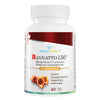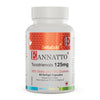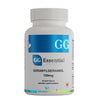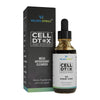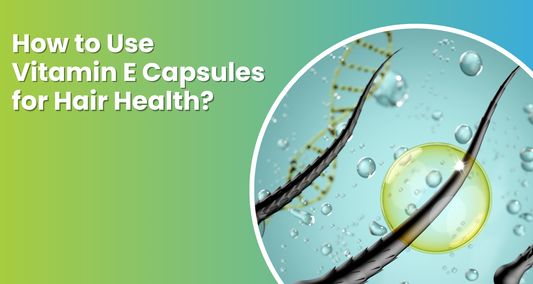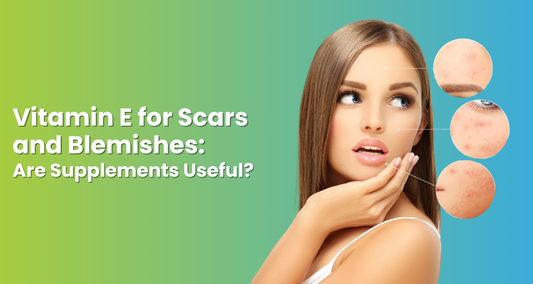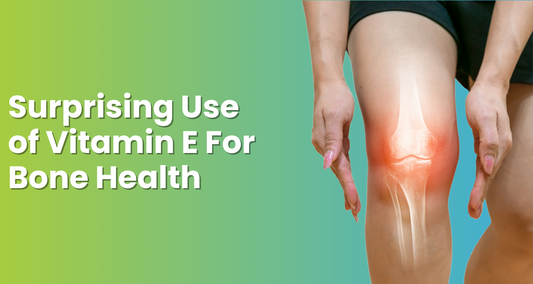Acne is a common skin concern that affects individuals of all ages and genders. While several factors contribute to acne breakouts, there is a growing concern over the relationship between whey protein consumption and acne. With the increasing popularity of whey protein supplements among fitness enthusiasts, it is essential to understand the potential impact they may have on skin health.
In this section, we will explore the connection between whey protein consumption and acne breakouts. Explore facts about 'Does whey protein cause acne?' to understand its potential impact on your skin. We will also examine scientific studies and evaluate the whey protein and acne relationship to determine if there is a causal link.
Key Takeaways
- To answer the question "Does whey protein cause acne?" we first need to understand acne breakouts. Acne can result from various factors, including diet, genetics, and skincare routine.
- Research studies have shown mixed results about the relationship between whey protein consumption and acne.
- Individuals who are experiencing persistent acne breakouts while consuming whey protein should consult a dermatologist for professional advice.
- Several practical tips can help manage or prevent acne breakouts while consuming whey protein, such as maintaining proper skincare routines and healthy diets.
- The relationship between whey protein and pimples requires further research to establish a conclusive connection.
Understanding Whey Protein and Its Effects on Skin
Whey protein is a popular dietary supplement that is commonly used to support muscle growth and recovery. It is derived from cow's milk and contains a variety of amino acids, including essential amino acids that the body needs but cannot produce on its own.
In addition to its potential benefits for muscle health, whey protein may also have positive effects on the skin. Some studies have suggested that regular consumption of whey protein may lead to increased collagen production and improve skin elasticity, which could result in reduced fine lines and wrinkles.
However, it is important to note that there may also be potential negative effects of whey protein on the skin. One study found that whey protein supplements could lead to an increase in acne breakouts in some individuals. It is thought that this may be due to how whey protein can affect hormone levels in the body.
Overall, the effects of whey protein on the skin are complex and multifaceted, and more research is needed to fully understand its impact. If you are experiencing skin problems while consuming whey protein, it may be worth speaking to a dermatologist who can provide personalized advice and guidance.
Whey Protein and Acne Breakouts: Myth or Reality?
There is a commonly held belief that whey protein consumption is a leading cause of acne breakouts. However, while there is anecdotal evidence to support this claim, the scientific evidence is less robust.
A study published in the Journal of the American Academy of Dermatology found no significant difference in acne occurrence between those who consumed whey protein supplements and those who did not. However, the study was limited to a small sample size and required further investigation to confirm the results.
Another study published in the Journal of Dairy Science found that whey protein consumption could potentially contribute to acne breakouts due to its impact on insulin levels. Insulin is a hormone that can stimulate the production of sebum, which can clog pores and lead to acne breakouts.
That being said, not all individuals who consume whey protein will experience acne breakouts. The development of acne depends on various factors such as genetics, hormones, skincare routines, and diet.
While whey protein may not necessarily be the sole cause of acne, it can aggravate existing acne breakouts. So, if you are experiencing persistent acne breakouts while consuming whey protein, it may be worth considering alternative protein sources or reducing your intake of whey protein supplements.
Whey Protein Side Effects
Aside from potentially aggravating acne breakouts, whey protein supplementation has a few common side effects. These include:
- Stomach discomfort
- Bloating
- Cramps
- Headaches
- Increased bowel movements or diarrhea
- Nausea
However, it's worth noting that these side effects are typically mild and short-lived. On the whole, whey protein is considered a safe and effective protein supplement for most individuals.
The Science Behind Whey Protein and its Impact on Skin
Whey protein is a byproduct of milk that contains essential amino acids and is widely used as a supplement by athletes and fitness enthusiasts. While there may be several benefits of consuming whey protein, some whey protein acne studies have suggested a potential link between whey protein and acne breakouts.
Researchers have hypothesized that whey protein could potentially stimulate the production of certain hormones, such as insulin-like growth factor-1 (IGF-1), which could increase sebum (oil) production in the skin, ultimately leading to the development of acne. However, the evidence supporting this hypothesis remains inconclusive, and further research is needed to establish a definitive causal link between whey protein consumption and acne breakouts.
Moreover, studies have suggested that whey protein could have a positive impact on the skin by improving its overall health, elasticity, and hydration levels. Several skincare brands have launched products that contain whey protein due to its purported benefits for the skin.
While the potential whey protein and acne connection is still being investigated, it is essential to consider other factors that could contribute to the development of acne. These factors could include genetics, hormonal imbalances, stress, and diet. Consulting with a dermatologist can help determine the underlying cause of acne breakouts and provide personalized treatment recommendations.
Overall, the scientific evidence regarding the impact of whey protein on skin health remains inconclusive. However, individuals concerned about acne breakouts while consuming whey protein should be mindful of their skincare routine, diet, and other lifestyle factors that could contribute to acne development.
Whey Protein and Skin Inflammation: Separating Fact from Fiction
Many people believe that whey protein can cause skin inflammation, leading to acne breakouts. While some studies suggest that whey protein may contribute to skin inflammation, the evidence is not conclusive, and more research is needed to establish a causal link.
A study published in the Journal of the American Academy of Dermatology found that whey protein supplements could potentially increase insulin-like growth factor 1 (IGF-1) levels, which have been linked to acne breakouts. However, the study had a small sample size and did not prove that whey protein directly caused acne breakouts.
Another study published in the Journal of Dairy Science found that whey protein may increase the production of inflammatory markers in the body, which could potentially lead to skin inflammation. However, this study was conducted on mice, and more research is needed to determine if the same effect occurs in humans.
Overall, while there is some evidence to suggest that whey protein may contribute to skin inflammation, it is not yet clear if whey protein and skin problems are directly related. It is important to consider other factors that can contribute to acne, such as hormonal changes, diet, and skincare routine, and to seek professional advice if you are experiencing persistent acne breakouts.
Factors that Influence Acne Breakouts
While the potential relationship between whey protein consumption and acne breakouts is a topic of debate, it's important to remember that acne can be influenced by many factors. Hormonal changes, for example, can contribute to acne breakouts, particularly during puberty or menopause. Certain medications and underlying medical conditions can also cause acne to flare up.
Diet can also play a role in acne development. Consuming high levels of refined sugars and carbohydrates can promote inflammation and contribute to acne. Additionally, a lack of essential vitamins and minerals can affect skin health, potentially leading to breakouts.
Your skincare routine can also impact acne development. Overwashing or using harsh products can damage the skin barrier, leading to inflammation and acne. On the other hand, neglecting to wash your face or remove makeup can clog pores and cause breakouts as well.
Finally, genetics can play a role in acne susceptibility. If you have a family history of acne, you may be more likely to experience breakouts yourself.
It's essential to consider these factors alongside whey protein consumption when addressing acne concerns. Evaluating your diet, skincare routine, and genetics can help you identify potential triggers for breakouts and develop a personalized approach to managing acne while using whey protein supplements.
Tips for Managing Acne while Consuming Whey Protein
If you're looking to continue taking whey protein supplements without worrying about acne breakouts, there are several steps you can take to manage your whey protein effects on skin health. Here are some practical tips:
1. Choose High-Quality Whey Protein Supplements.
Opt for whey protein supplements that are made from high-quality ingredients. Look for products that are free of added sugars, artificial flavors, and preservatives. Choosing a high-quality protein supplement will ensure that you're getting all the necessary nutrients without any unwanted additives that could contribute to acne breakouts.
2. Maintain a Consistent Skincare Routine.
Keeping your skin clean and moisturized is crucial to prevent acne breakouts. Stick to a regular skincare routine that includes washing your face twice a day with a gentle cleanser, moisturizing, and using non-comedogenic products. Non-comedogenic products are formulated to not block pores, which can reduce the likelihood of acne breakouts.
3. Stay Hydrated.
Drinking enough water is essential for keeping your skin healthy. Staying hydrated can help prevent acne breakouts by flushing toxins from your body and promoting healthy skin cell turnover. Aim to drink at least eight glasses of water per day, and consider adding hydrating foods, such as watermelon and cucumbers, to your diet.
4. Monitor Your Diet.
While whey protein is not a direct cause of acne breakouts, other aspects of your diet could be contributing to your skin issues. Processed foods, sugars, and greasy foods can all contribute to inflammation and breakouts. Consider incorporating more anti-inflammatory foods, such as leafy greens, berries, and nuts, into your diet to help manage acne while consuming whey protein.
5. Talk to Your Dermatologist.
If you're experiencing persistent acne breakouts while taking whey protein supplements, it's a good idea to schedule an appointment with a dermatologist. A dermatologist can help determine the underlying cause of your acne, develop a personalized treatment plan, and recommend specific skincare products that will work best for your skin type.
By following these tips, you can effectively manage acne breakouts while continuing to enjoy the benefits of whey protein supplements.
Seeking Expert Advice: Consulting a Dermatologist
If you are experiencing persistent acne breakouts while consuming whey protein, it's essential to seek professional advice from a dermatologist. Dermatologists are equipped with specialized knowledge and expertise in treating various skin conditions, including acne. By consulting with a dermatologist, you can receive personalized skincare advice tailored to your specific needs and concerns.
A dermatologist can help you understand the underlying cause of your persistent acne breakouts, whether it's related to whey protein consumption or other factors. They can recommend effective acne treatments, such as topical medications or oral antibiotics, that can help manage your symptoms and prevent future breakouts.
Moreover, a dermatologist can guide how to incorporate whey protein into your diet without aggravating your acne. They can suggest skincare products that are non-comedogenic and won't clog your pores, as well as recommend diet and lifestyle changes that can support healthy skin.
By working with a dermatologist, you can take proactive steps to manage your acne while still enjoying the benefits of whey protein. Don't hesitate to schedule a consultation with a dermatologist if you're struggling with persistent acne breakouts.
Conclusion
After examining the evidence for the frequently asked question 'Does whey protein cause acne?' it appears that the relationship between whey protein consumption and acne breakouts is still unclear. While some studies suggest a potential link, more research is needed to establish a direct causal connection.
It's essential to note that many factors contribute to acne breakouts, including genetics, hormonal changes, diet, and skincare routine. Therefore, it is vital to consider whey protein consumption as one of many possible contributing factors.
If you are experiencing persistent acne breakouts while consuming whey protein, it is advisable to seek personalized skincare advice from a dermatologist. They can provide a comprehensive evaluation of your skin health and offer tailored recommendations to manage your acne while using whey protein supplements.
Overall, while it is crucial to be aware of the potential impact of whey protein on the skin, the evidence does not suggest that it is a direct cause of acne. By considering other factors that contribute to acne and seeking expert advice, individuals can make informed decisions about whey protein consumption without compromising their skin health.
Frequently Asked Questions
Does whey protein cause acne?
A: The relationship between whey protein consumption and acne is still a topic of debate. While some studies suggest a potential correlation, more research is needed to establish a definitive causal link. It's essential to consider individual factors such as genetics, hormonal changes, and skincare routine when evaluating the impact of whey protein on acne breakouts.
What are the effects of whey protein on the skin?
A: Whey protein is a widely consumed supplement that offers various benefits for overall health and fitness. It contains essential amino acids that support muscle growth and recovery. However, there have been anecdotal reports of whey protein contributing to skin problems, including acne. The specific effects on the skin may vary from person to person.
Is there a connection between whey protein consumption and acne breakouts?
A: Some individuals claim that consuming whey protein leads to acne breakouts. However, scientific evidence supporting this relationship is limited and inconclusive. It's important to consider other factors that may contribute to acne, such as hormonal changes, diet, genetics, and skincare routine. If you experience persistent acne breakouts, it is advisable to consult a dermatologist for personalized advice.
Can whey protein cause skin inflammation and pimples?
A: The potential for whey protein to cause skin inflammation and pimples is not fully understood. While some individuals may experience adverse skin reactions after consuming whey protein, it is difficult to determine whether these reactions are directly caused by whey protein or other factors. If you notice skin inflammation or persistent pimples, it is advisable to consult a dermatologist to identify the underlying causes.
Are there other factors that can influence acne breakouts?
A: Yes, several factors can contribute to acne breakouts, including hormonal changes, diet, skincare routine, and genetics. Whey protein consumption should be considered in conjunction with these factors when assessing its potential impact on acne. It is important to adopt a comprehensive approach to skincare and consult a dermatologist for personalized advice.
What are some tips for managing acne while consuming whey protein?
A: If you experience acne breakouts while consuming whey protein, there are several steps you can take to manage them. Firstly, maintain a consistent skincare routine that includes gentle cleansing and exfoliation. Additionally, ensure a balanced diet and stay hydrated. If necessary, consult with a dermatologist for tailored skincare recommendations based on your specific needs.
Disclaimer: These statements have not been assessed by the FDA. The information contained within this page is for educational purposes only. It is not intended to replace the advice or attention of health care professionals.
